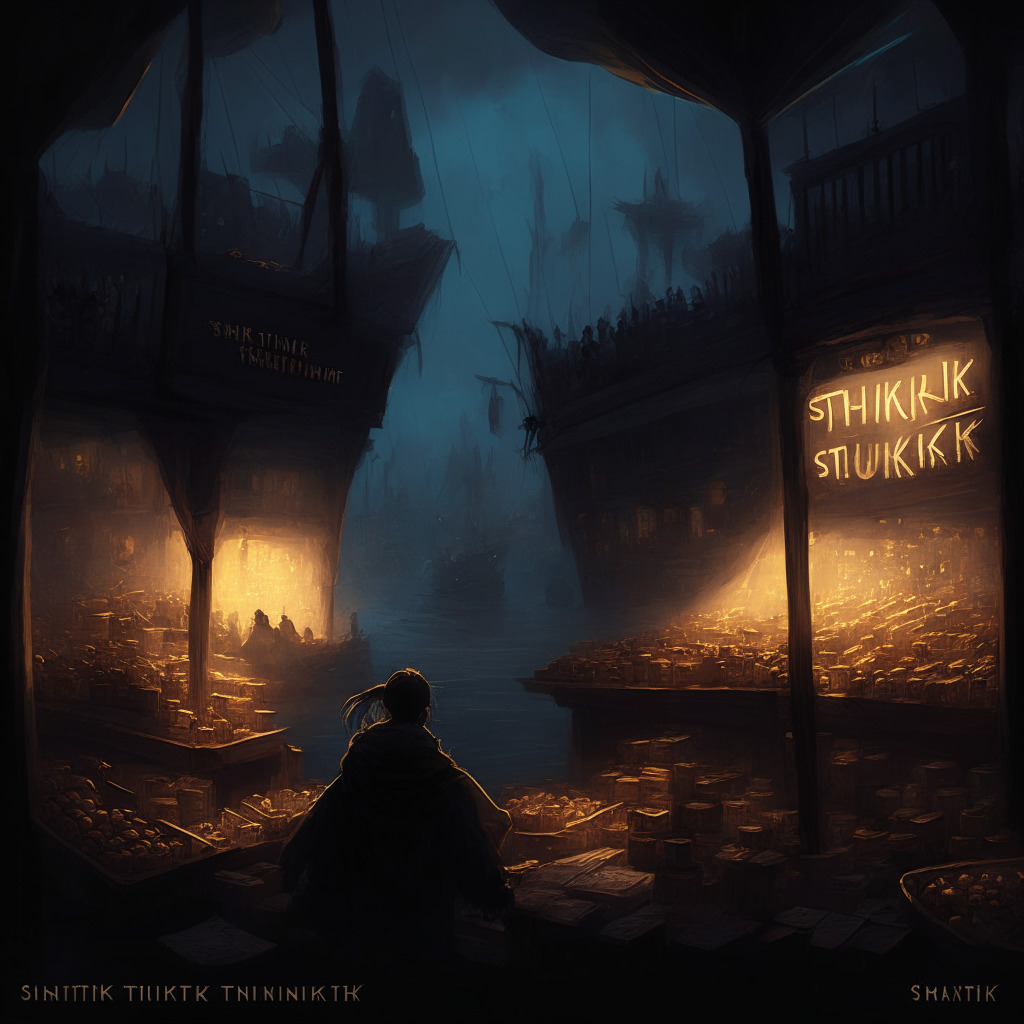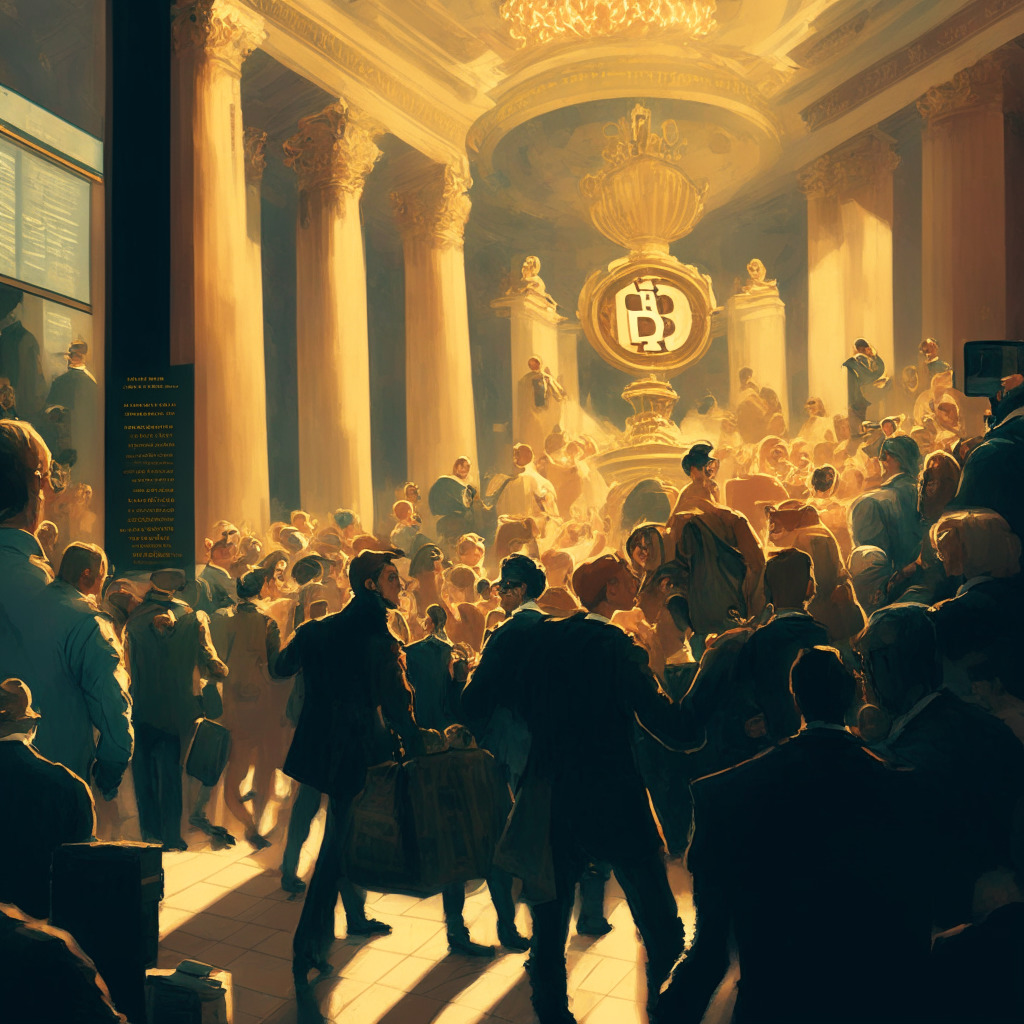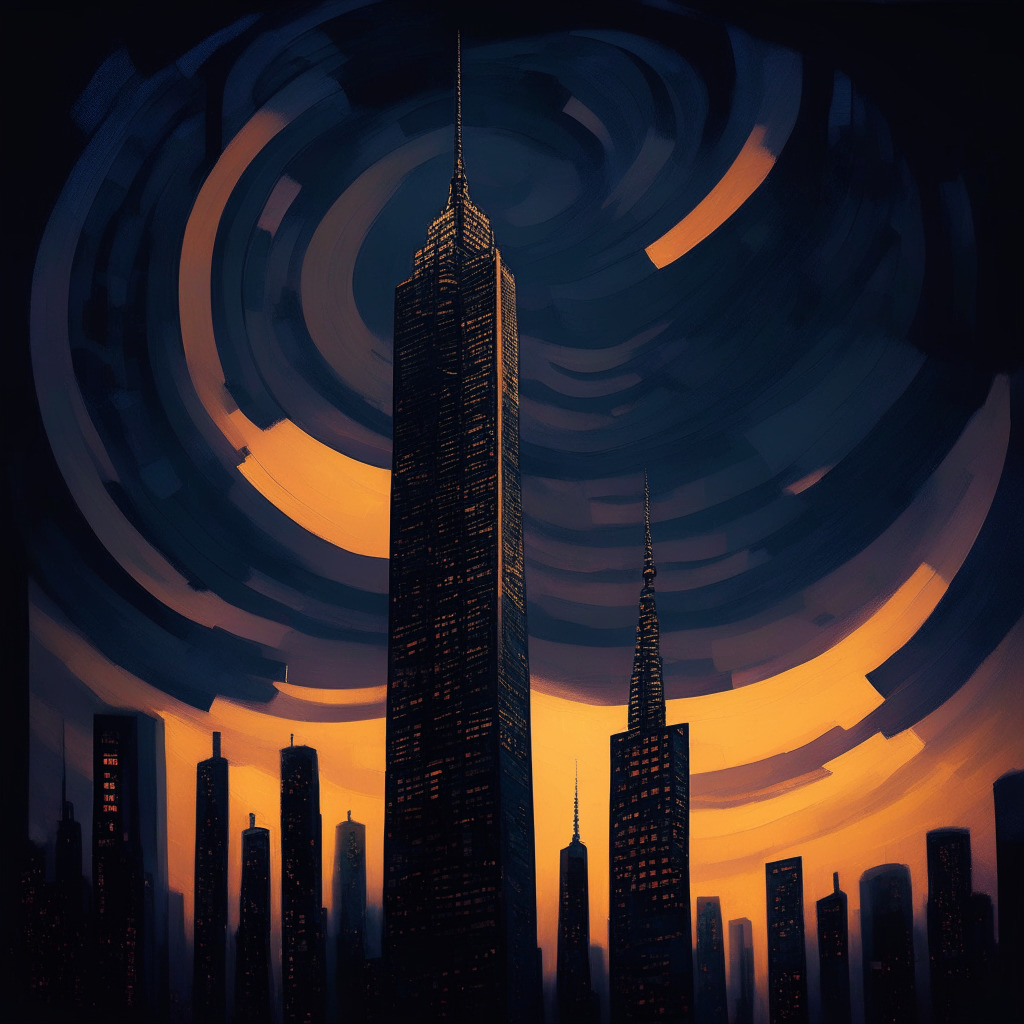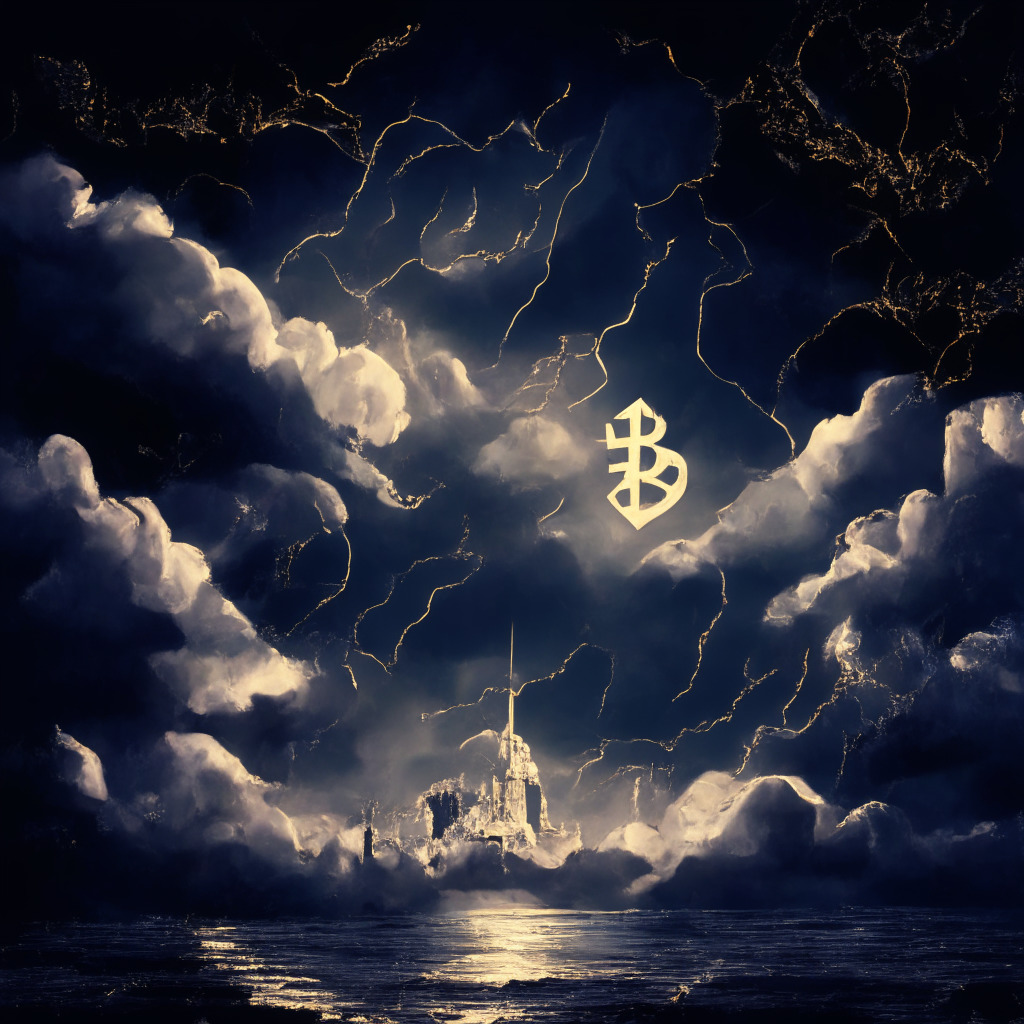Tensions are escalating in the thriving NFT market, as the combat between digital collectible creators and traders rages on. Triggers of this discord stem from the recent resolution by leading NFT exchanges, such as Blur and OpenSea, to trim the royalty rates accorded to artists when ownership of a token shifts. Their argument? Lower costs will spark more trading activity amid a market that’s seen volumes dramatically tank by a whopping 95% from a climax of $17 billion in January 2022.
Royalties, once enjoying a top spot at $269 million back in January, have unexpectedly nosedived to a mere $4.3 million in July, as the percentage paid took a plunge from a healthy 5% per transaction to a skeletal 0.6%. In the face of such a radical reduction in artist income, the conviction to create new digital masterpieces might dwindle, adding further woe to a market that’s already deeply submerged in a significant downturn.
The NFT market, in its glory days between August 2021 and May 2022, saw monthly royalties amass to $1.5 billion, spurred on by the popularity of collections akin to that of Yuga Labs Inc.’s renowned Bored Ape Yacht Club. However, as the market has faltered, largely qualified by the fading effects of the pandemic-era stimulus, creator payouts have invariably suffered.
The unveiling of Blur in October threw the NFT market into a series of disruptive tremors. By dangling the carrot of lower royalty rates, it swiftly drew in over 70% of the daily volume on the Ethereum blockchain, pressing the once-dominant OpenSea platform to reevaluate its strategy and follow suit. These exchanges’ decisions to manipulate royalty rates have engendered a dilemma, with some experts championing for the embedding of these rates directly into the governing software of NFTs.
Some plausible solutions have been proposed, including linking NFTs to merchandise sales as an alternative source of artists’ income. Blurring the lines of benefit and loss, artist Matt Kane expressed concern that this drop in creator engagement would have far-reaching consequences, ultimately undermining any short-term surge in trading volumes brought about by lowered costs.
However, in the vast ocean of digital tokens, not every collector is onboard with this view. Some believe that this technology could usher in a non-zero-sum economy, turning it into a win for all, a sharp contrast to the current scene. Nevertheless, as it seems now, the NFT market is caught in a tug-of-war, reeling between the allure of increasing trading volumes and the dire need to sustain creator engagement.
Source: Cryptonews




